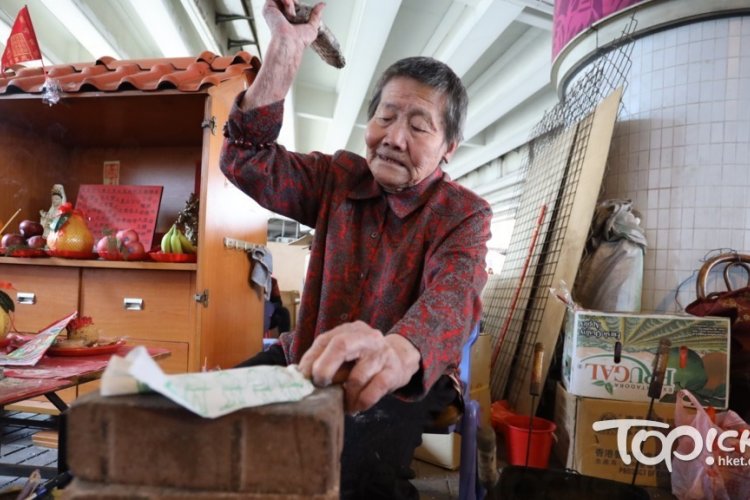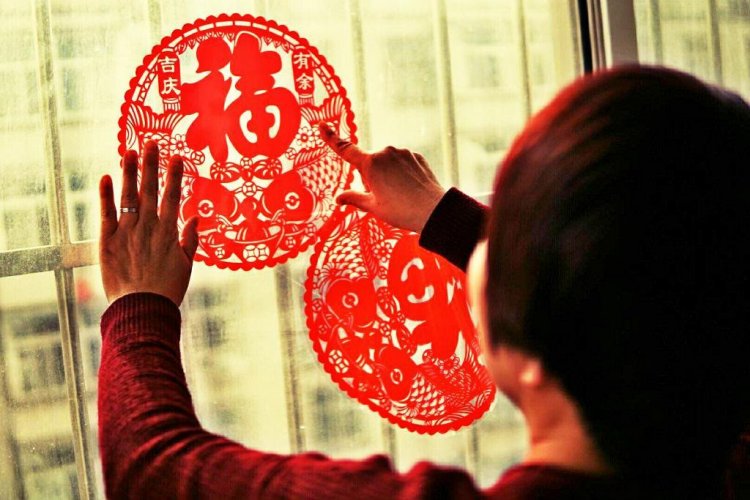Solar Terms 101: Spring Rain Nourishes the Ground and Wakes Up Every Living Soul
The traditional Chinese lunar calendar divides the year into 24 节气 jiéqì solar terms based on seasonal changes and natural phenomenon. They play an important role in guiding agricultural activities, even to this day. But even city-dwellers like us can enjoy them. Each solar term has its own associated customs, traditions, and even recipes. In Solar Terms 101, we delve into what makes each one special... Name of the solar term: 雨水 yǔshuǐ lit. “The Rain”
Gregorian date: Feb 19 +/- a day (Feb 19, 2023)What is yushui all about
As the second solar term, the advent of yushui generally falls between Feb 18 and Feb 20 when the solar longitude turns to 330 degrees in the sky.
As you may have noticed, the name of this solar term is tied to precipitation much like 谷雨 gǔ yǔ Grain Rain, 小满 xiǎo mǎn Small Full (Grain), 大雪 dà xuě Major Snow, and 小雪 xiǎo xuě Minor Snow, which are crucial for farmers who use the solar term system to guide their agricultural activities. The arrival of yushui means rainfall will begin to grace the majority of China, albeit mostly as a light drizzle. The scarcity of precipitation in this season and the importance it holds for the growth of crops is reflected in proverbs such as 春雨贵如油 chūnyǔ guì rú yóu the spring rain is more valuable than the grease.
The micro seasons of yushui

Compared to the micro seasons of 立春 lì chūn Start of Spring which still bear the remnants of winter, those that unfold during yushui mark the start of a new chapter in nature's cyclical story. The first one 獭祭鱼 tǎ jì yú is named after the hunting habits of the otter who usually lines up their prey, an act that was interpreted by the ancient Chinese as a ritual offering to God. If you've been following this column since its start, then such an association shouldn't surprise you. Pop quiz: Can you recall any other animals considered to practice a similar ritual by ancient Chinese?
Building upon that, we also need to take a moment to reflect on the second micro season 鸿雁来 hóngyàn lái since wild geese – and their comings and goings – have been another frequent indicator of micro seasons. Previously, we saw them migrating south to avoid the harsh winter when 白露 bái lù White Dew comes, arriving at their warmer autumn resort during 寒露 hán lù Cold Dew, and ending their vacation and heading back north during 小寒 xiǎo hán Minor Cold. Finally, however, we will see our feathered friends again during yushui, a full nine solar terms after their initial departure.
The last micro season, 草木萌动 cǎomù méngdòng the plant germinates, illustrates the plant’s general reaction as spring rain falls upon their twigs and buds, a much-anticipated liquid feast.
Pop some rice for a good harvest, and find a godfather for a better life
Still recovering from the gluttonous feast and deluge of booze you consumed during the holiday? Fear not, the customs of yushui are alcohol-free.
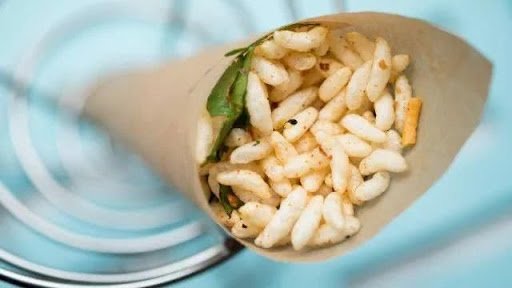
You may think 爆米花 bào mǐhuā popcorn is a recent invention of the West, however, the Hakka people of southern China – one of the country's major rice-producing regions – have been practicing an annual tradition of 占稻色 zhàn dào sè rice-popping prediction for centuries. Farmers will stir fry dry sticky rice in a wok before returning to work in the fields. When they come back to check on their rice, the more grains that have popped, the better the harvest will be. In their local dialect, the pronunciation of 花 huā is similar to 发 fā, an omen of good fortune. As such, the popped rice is sometimes used as a tribute to the gods.

On the familial front, it was common for parents to 拉保保/撞拜寄 lā bǎo bǎo/zhuàng bài jì find a godfather or godmother for their children around this time, especially if a fortune-teller predicted that parents or their kids were lacking certain things in their destiny. For the Han people of Sichuan, it is common to look for capable candidates during this solar term since it is a season for growth. Traditionally, with kids in tow, parents grab a basket filled with food, fragrant wax, paper money, and other gifts then head into the crowd. Want your kid to be intelligent? Ask someone well-educated to take up the mantle. Got a kid who's prone to sickness? Consider enlisting someone who is buff and sturdy. Somewhat humorously, if someone is approached by a parent they can – quite literally – run away, however, most of the time they will happily oblige given that it's a sign of unwavering trust and will prove favorable in the future.
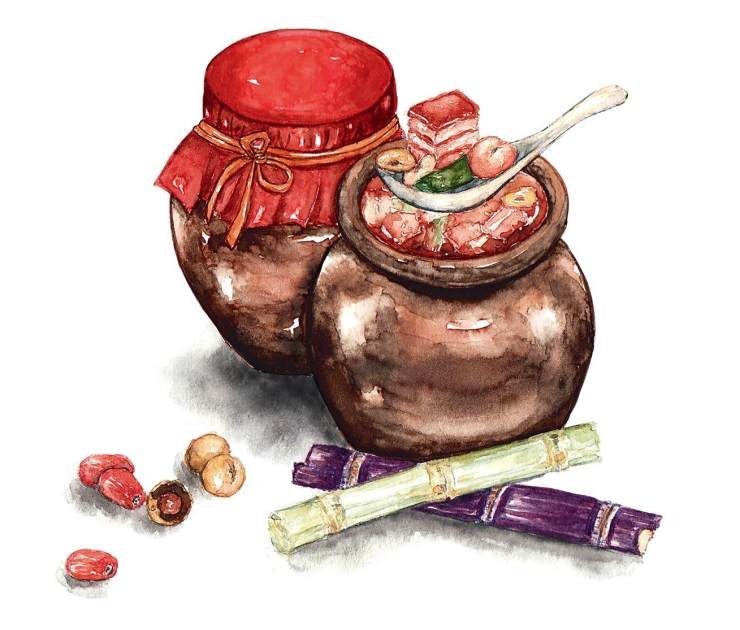
Back in the old-times, married couples would spend Spring Festival with the husband’s family. Conversely, yushui is when they pay a visit to the maternal side. The son-in-law prepares two rattan chairs with red cotton ribbons to express his wishes for the longevity of his in-laws. Meanwhile, the daughter will bring 罐罐肉 guàn guàn ròu a jar containing stewed pig feet with beans and seaweed steeped in chicken broth which is sealed with red rope and red paper. If the couple is newly married, the parents-in-law should reciprocate with umbrellas to shelter the son-in-law from the rain while earning the families’ living outdoors.
What to eat for yushui
Besides popped rice and jarred pig feet, tangyuan is another seasonal dish commonly enjoyed, namely, if Lantern Festival happens to fall within this solar term period. The glutinous treat is not only a sweet indulgence for your palate but also suits the traditional Chinese medicine guidelines for food during this season. The practitioners of TCM believe that people need to consume more sweet food to nourish the stomach and spleen.
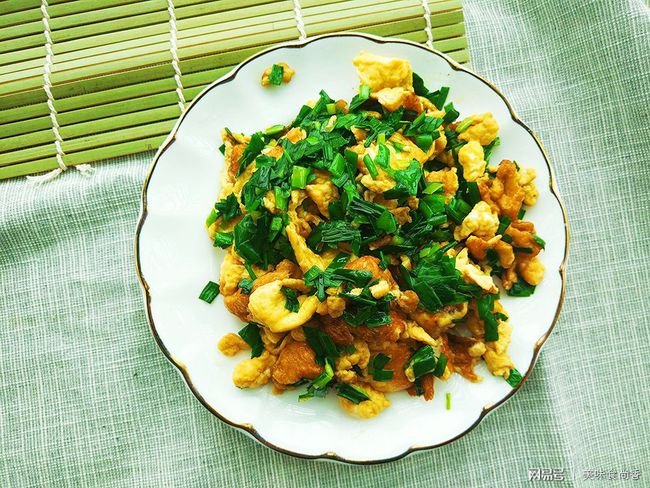
The drastic temperature fluctuations within and between days also put people’s immune and digestive systems to the test. Food that is rich in fiber or can strengthen immunity is always welcomed. For example, the green chive is a seasonal herb high in vitamin B, vitamin C, fiber, and carotene. As such, traditional Chinese praise it, and believe it can sense the growth of yang energy, thus striking an energy balance in those who consume it. What's more, cooking green chives requires minimal gastronomy skills. Case in point: A plate of 韭菜炒鸡蛋 jiǔcài chǎo jīdàn stir-fried green chives with eggs is a simple and perfectly nutritious dish to open your appetite.
Read: Solar Terms 101: Kiss the Ice Goodbye and Take a Bite of Spring
Images: NetEase, 中国国家地理, 青岛文明网, 中国孔子网, Zhihu, desentupir24h



